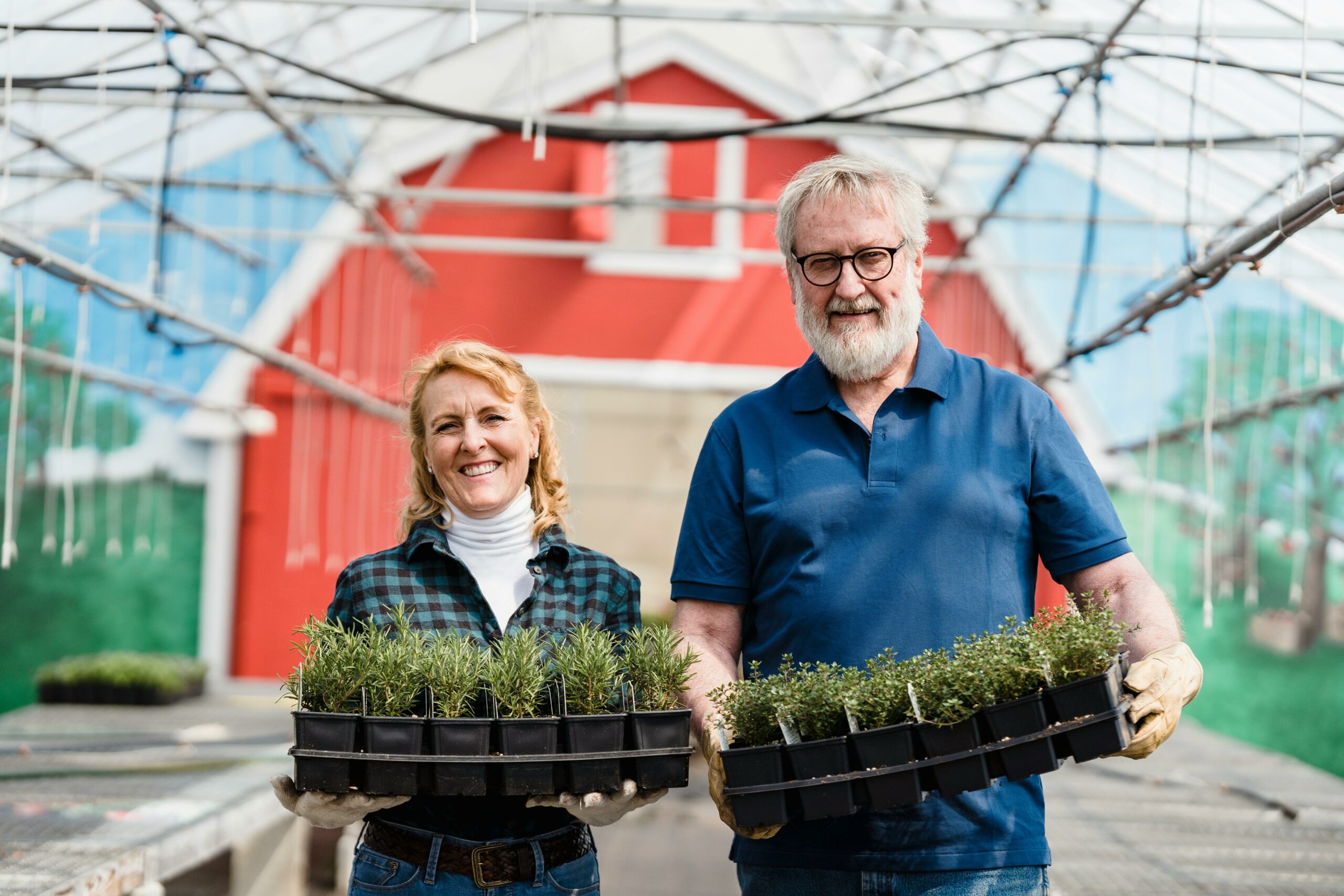10 Skills You’ll Learn in a Horticulture Course
Horticulture, the science and art of growing and cultivating plants, is an exciting field that offers you the joy of working with nature and opens many career opportunities in landscaping, gardening, agriculture, and environmental sustainability. Whether you want to pursue a professional career or improve your green thumb, a horticulture course will equip you with the knowledge and skills you need to succeed.
In this blog, we’ll explore ten essential skills you’ll learn in a horticulture course and how they can benefit you in various practical applications, from home gardening to professional landscaping or environmental conservation.
1. Plant Identification and Classification
One of the core skills you’ll develop in a horticulture course is the ability to identify and classify plants. This skill is essential for gardeners, landscapers, and those involved in agriculture, forestry, and environmental conservation.
In a typical horticulture program, you’ll learn how to differentiate between various types of plants—such as trees, shrubs, perennials, and annuals—based on their physical features, growth habits, and environmental needs. You’ll also gain a strong understanding of plant taxonomy and how plants are categorised into different families, species, and varieties.
This knowledge enables you to select the right plant for the right environment, whether designing a garden, maintaining an orchard, or contributing to biodiversity conservation efforts. By understanding plants’ characteristics, you can also anticipate and manage potential challenges like pests, diseases, or climate-related stresses.
2. Soil Science and Management
Healthy soil is the foundation of healthy plants, and understanding soil science is critical to success in horticulture. In a horticulture course, you’ll delve into soil properties, including texture, pH, nutrient content, moisture retention, and how these factors influence plant growth.
A good understanding of soil allows you to appropriately amend and improve soil quality, whether growing flowers, vegetables, or fruit trees. You’ll also learn about soil testing and how to interpret the results to determine what amendments (such as compost, fertilisers, or lime) may be necessary to optimise plant health.
Moreover, many horticulture programs emphasise sustainable soil management practices, such as crop rotation, mulching, and organic fertilisers, which can minimise environmental impact while improving soil fertility. These skills are essential for sustainable farming practices and eco-friendly gardening.
3. Plant Propagation Techniques
Plant propagation is creating new plants from existing ones, a vital skill in a horticulture course. Whether you’re interested in growing plants from seeds, cuttings, or division, learning how to propagate plants will allow you to expand your garden, produce healthy seedlings, and even start your own nursery business.
In a horticulture course, you’ll learn several propagation methods:
- Seed propagation: Understanding how to collect properly, store properly, and sow seeds.
- Vegetative propagation: Techniques such as stem, root, and leaf cuttings that can create genetically identical plants.
- Grafting and budding: Combining two plant parts to create a new, superior variety, often used for fruit trees or ornamental plants.
Each method has advantages and challenges, and knowing which technique is best suited for specific plants is essential for both hobbyist gardeners and professional horticulturists.
4. Integrated Pest Management (IPM)
Managing pests in an eco-friendly and sustainable way is a significant focus in modern horticulture. In an IPM system, you’ll learn how to monitor and manage pests using cultural, biological, and chemical methods. The goal is to control pest populations while minimising environmental harm, beneficial insects, and human health.
In a typical horticulture course, you’ll study the life cycles of common garden pests and learn how to identify signs of damage early. You’ll also explore natural pest control methods, such as introducing beneficial insects (like ladybugs and predatory mites), using insecticidal soaps, or applying organic treatments.
In addition to controlling pests, you’ll also learn how to prevent pest problems from arising by improving plant health and resilience through proper soil care, plant spacing, and crop rotation.
5. Landscape Design and Maintenance
If you’re interested in landscaping, a horticulture course will teach you design principles and the practical skills to create aesthetically pleasing and functional outdoor spaces. This includes learning about color theory, plant textures, and using plants to create focal points or establish a sense of flow in a landscape.
You’ll also gain hands-on experience in garden planning, including the practical aspects of laying out a garden or designing a landscape plan. This involves selecting plants that thrive in specific environmental conditions, considering the plants’ growth habits, and thinking about the long-term maintenance needs of the landscape.
Another essential component of landscape design is learning about irrigation systems, hardscaping elements (such as pathways, retaining walls, and patios), and the appropriate tools and techniques for maintaining a landscape year-round.
6. Water Management and Irrigation Systems
Efficient water management is critical, particularly in regions where water conservation is a priority. A horticulture course will teach you how to design and implement efficient irrigation systems that minimise water waste while ensuring plants receive the moisture they need for optimal growth.
You’ll learn how to choose the proper irrigation method (drip irrigation, soaker hoses, or sprinkler systems) based on the size of the garden, the type of plants, and local weather conditions. The course will also cover the importance of monitoring water usage and how to adjust watering schedules based on seasonality and rainfall.
In addition, you’ll gain insight into rainwater harvesting systems, which can help reduce reliance on municipal water sources and provide an eco-friendly solution for irrigation.
7. Pruning and Plant Care
Pruning is essential for maintaining the health and appearance of many plants, including trees, shrubs, and flowering plants. A horticulture course will teach you the best practices for pruning, including how to properly remove dead or diseased wood, shape plants, and promote better flowering or fruit production.
You’ll also learn about different pruning techniques for various types of plants, such as thinning, heading back, or rejuvenation pruning. Additionally, understanding the ideal times to prune—whether it’s during dormancy or post-bloom—can make a significant difference in plant health and productivity.
Alongside pruning, you’ll be taught general plant care practices, such as fertilising, repotting, and dealing with common plant diseases. Proper care techniques will ensure your plants thrive throughout the growing season.
8. Sustainable Gardening Practices
Sustainability is at the forefront of modern horticulture, and you’ll learn a range of eco-friendly gardening practices in a horticulture course. Sustainable horticulture reduces environmental impact, conserves resources, and creates biodiverse ecosystems.
Some of the practices you’ll explore include:
- Composting: Turning organic waste into nutrient-rich soil for your plants.
- Mulching: Applying organic materials around plants to retain moisture and suppress weeds.
- Pollinator-friendly gardening: Creating spaces that attract bees, butterflies, and other pollinators to support biodiversity.
- Water-efficient gardening: Using drought-tolerant plants and reducing water usage through smart irrigation and rainwater harvesting.
These practices help reduce the carbon footprint and create more resilient gardens that can thrive with minimal intervention, making them perfect for homeowners, community gardeners, and professionals working on large-scale landscaping projects.
9. Greenhouse and Nursery Management
If you’re interested in running a nursery or managing a greenhouse, a horticulture course will give you the skills to grow and care for plants in controlled environments. You’ll learn about temperature, humidity, and light control systems to optimise plant growth, especially for more delicate or high-value plants.
Additionally, you’ll study the economics of running a nursery, including inventory management, plant propagation, marketing, and customer service. You’ll gain an understanding of the production cycle for different plant species, from seeding and germination to transplanting and sale.
Whether starting your own business or working in a commercial greenhouse, these skills will help you create a successful and profitable plant production system.
10. Environmental Stewardship and Conservation
Finally, a horticulture course will help you develop a strong sense of environmental stewardship. As you learn about plant care, pest management, and sustainable gardening, you’ll gain a broader understanding of how human actions can impact ecosystems and biodiversity.
Whether you’re working on ecological restoration projects, managing public gardens, or promoting sustainable agricultural practices, this knowledge will empower you to make decisions that support the environment’s health. You’ll understand the importance of native plants, habitat restoration, and horticulture’s role in maintaining a balanced ecosystem.
Conclusion
An online horticulture course equips you with diverse practical skills that can be applied to various careers and personal projects. Whether you’re a hobbyist eager to grow your food and beautify your outdoor spaces or a professional looking to enter the fields of landscaping, agriculture, or environmental management, the skills you gain from studying horticulture will serve you well.
So, if you’ve ever dreamed of making a career out of your passion for plants or simply want to nurture your green thumb, a horticulture course is an excellent investment in your future!
Visit DP Training today to learn more. We provide government- funded horticulture courses.



